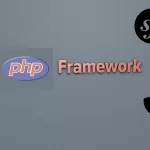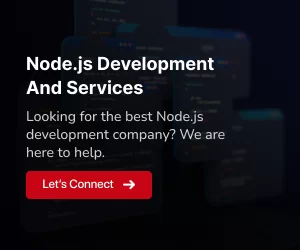Hey there, fellow tech enthusiasts! In the fast-paced world of web development, staying up-to-date with the latest trends and technologies is crucial. And if you’re into PHP-based frameworks, there’s one name that’s been making waves in recent years, especially in the United States—Laravel. In this blog post, we’ll dive deep into the Laravel development trends in the US, giving you the insights you need to stay ahead in the game.
Laravel, known for its elegant syntax and developer-friendly features, has been the go-to choice for many web developers and businesses across the United States. From its inception to the present day, Laravel has evolved, adapting to the changing needs of web development. Whether you’re a seasoned developer or just starting your journey, understanding these trends can be a game-changer for your projects.
So, grab your virtual seat as we explore the exciting world of Laravel development in the United States and discover what’s been happening in this dynamic ecosystem. Let’s get started!
Top Laravel Development Trends in 2023
As we step into 2023, the Laravel development landscape in the United States is witnessing some exciting trends that are shaping the way web applications are built and maintained. To keep you in the loop, we’ve compiled a list of the top Laravel development trends you should be aware of:
Laravel 9 – The New Era Begins:
Laravel continues to evolve, and the release of Laravel 9 is a testament to its commitment to innovation. With new features, improved performance, and enhanced security, this version is set to redefine web development standards. Developers across the US are eagerly adopting Laravel 9 to leverage its capabilities.API-First Development:
API-driven applications are becoming increasingly popular in the US, and Laravel is at the forefront of this trend. Developers are using Laravel to build robust APIs that power both web and mobile applications. This approach enhances flexibility and allows for seamless integration with various platforms.Serverless Laravel:
Serverless computing is gaining traction as it simplifies deployment and scalability. Laravel developers in the US are exploring serverless architectures using platforms like AWS Lambda, Google Cloud Functions, and Azure Functions. This trend is all about efficient resource utilization and cost savings.Real-time Applications with Laravel Echo:
Real-time features are in high demand, especially for communication and collaboration apps. Laravel Echo, combined with technologies like WebSockets and Pusher, enables the development of real-time applications in Laravel. This is a game-changer for social media, messaging apps, and live streaming platforms.Microservices with Laravel:
Microservices architecture is on the rise, and Laravel’s modular nature makes it a perfect fit. Developers are breaking down monolithic applications into smaller, independent services, allowing for better scalability, maintainability, and development speed.
Also Read: Optimizing Web Performance: Laravel Development for US Enterprises
Features to watch out for in a Laravel development for 2023
In the dynamic world of web development, staying ahead of the curve is essential, and Laravel continues to be at the forefront of PHP frameworks. As we look ahead to 2023, here are some key features and functionalities to keep an eye on in Laravel development:
Laravel 9’s Enhanced Features:
Laravel 9 is expected to introduce several new features and improvements. Stay tuned for updates on what’s coming in the next major release, as it may introduce tools and capabilities that streamline development and enhance performance.API Authentication Enhancements:
With the growing importance of secure APIs, Laravel is likely to introduce enhancements to API authentication, making it easier to implement robust authentication mechanisms for your API-driven applications.GraphQL Integration:
While GraphQL is not a native part of Laravel, there are packages and integrations available that allow you to incorporate GraphQL into your Laravel projects. This enables more flexible and efficient data retrieval for your applications.Improved ORM (Eloquent):
Laravel’s Eloquent ORM is expected to receive updates and optimizations, improving database interaction and making it even more developer-friendly.Advanced Testing Features:
Laravel has always emphasized testing, and 2023 is likely to bring enhancements to the testing suite, making it easier to write comprehensive tests and ensure the reliability of your applications.
Web applications built using Laravel trends
In the ever-evolving landscape of web development, Laravel continues to be a popular choice among developers for building robust and feature-rich web applications. Here are some key trends in web applications built using Laravel in 2023:
Progressive Web Apps (PWAs):
Progressive Web Apps are on the rise. Laravel developers are leveraging PWA technologies to create web applications that offer a seamless user experience, including offline access, push notifications, and fast load times.API-First Approach:
The API-first development approach is gaining traction. Laravel’s API capabilities are being used to build backend systems that power both web and mobile applications, ensuring seamless data communication across platforms.Real-time Features:
Real-time features like chat, notifications, and collaborative editing are in high demand. Laravel, with packages like Laravel Echo and WebSockets, allows developers to easily implement real-time functionality in their applications.Microservices Architecture:
Microservices are becoming a preferred architectural pattern for complex applications. Laravel’s modular structure makes it suitable for building and managing microservices, enabling scalability and ease of maintenance.Headless CMS Integration:
Developers are integrating headless content management systems (CMS) with Laravel to separate content from presentation. This approach offers more flexibility and allows for dynamic content delivery.Serverless Deployment:
Serverless computing is simplifying deployment and scalability. Developers are exploring serverless architectures for Laravel applications, reducing infrastructure management overhead and optimizing costs.Machine Learning and AI Integration:
The integration of machine learning and AI features is becoming more common in Laravel applications. Developers are incorporating AI-powered recommendations, chatbots, and predictive analytics into their projects.
Why choose Laravel and adopt its web development trends?
Choosing Laravel and adopting its web development trends can provide numerous benefits to developers and businesses. Here are some compelling reasons why you should consider Laravel and its trends in web development:
Elegant Syntax and Readability:
Laravel’s clean and expressive syntax makes it easy to read and write code. This simplicity not only enhances developer productivity but also makes the codebase more maintainable.Active and Supportive Community:
Laravel boasts a vibrant community of developers who actively contribute to its growth. This means you can find a wealth of documentation, tutorials, and packages to streamline your development process.Rapid Development:
Laravel’s built-in features, such as authentication, routing, and caching, allow developers to build web applications quickly. This rapid development cycle can save time and resources.Modular Architecture:
Laravel’s modular structure and support for packages make it highly adaptable. You can easily integrate third-party libraries and components to extend the functionality of your application.Robust Security:
Laravel prioritizes security, offering features like built-in protection against common security threats, data encryption, and authentication scaffolding. This focus on security is crucial in today’s threat landscape.Eloquent ORM:
Laravel’s Eloquent ORM simplifies database interactions and provides an intuitive way to work with databases. This makes database management more efficient and reduces the risk of SQL injection.
Why does your project need Laravel?
Laravel is a popular PHP web application framework known for its developer-friendly features, robust security, and scalability. Here are some reasons why someone might choose Laravel for their project:
Rapid Development:
Laravel offers a wide range of built-in tools and features that speed up the development process. Tasks like authentication, routing, and caching are handled out of the box, allowing developers to focus on building unique functionality.Elegant Syntax:
Laravel’s clean and expressive syntax makes it easier to write and maintain code. This leads to improved code readability and maintainability.Modularity:
Laravel’s modular architecture and support for Composer packages make it easy to extend and customize functionality through third-party libraries. This modularity enhances project flexibility.Database Abstraction:
Laravel’s Eloquent ORM simplifies database interactions, reducing the need to write complex SQL queries. It offers a fluent, expressive way to work with databases.Security Features:
Laravel prioritizes security with features like built-in protection against common security vulnerabilities (e.g., SQL injection, cross-site scripting), data encryption, and robust authentication mechanisms.
Why is Laravel an emerging trend?
Laravel continues to be an emerging trend in web development for several reasons:
Developer-Friendly:
Laravel’s syntax is clean and expressive, making it easy for developers to write and maintain code. It simplifies many common web development tasks, reducing the learning curve for newcomers and boosting developer productivity.Rapid Application Development:
Laravel provides a range of built-in features and tools for tasks like authentication, routing, caching, and database interactions. This accelerates development, allowing developers to build feature-rich applications more quickly.Robust Security:
Laravel prioritizes security with built-in protection against common web vulnerabilities, such as SQL injection, cross-site scripting (XSS), and cross-site request forgery (CSRF). This focus on security is crucial in today’s threat landscape.Eloquent ORM:
Laravel’s Eloquent ORM simplifies database interactions by providing a fluent and expressive way to work with databases. This reduces the need for writing complex SQL queries and enhances data modeling.Modularity:
Laravel’s modular architecture and support for Composer packages make it highly adaptable. Developers can easily integrate third-party libraries and components, enhancing project flexibility.Active Community:
Laravel has a passionate and active community of developers who contribute to its growth. This community-driven approach ensures continuous improvement and the availability of extensive documentation, tutorials, and packages.RESTful API Development:
With the rise of mobile applications and microservices architecture, Laravel’s support for RESTful API development has become increasingly important. It simplifies the process of building APIs to power various platforms.
Laravel Development Companies in US:
here’s the updated list of Laravel development companies in the US:
Toptal:
Toptal is a marketplace for top Laravel developers and other freelancers. They provide access to a pool of highly skilled developers who can work on Laravel projects.GeekyAnts:
GeekyAnts is a web and mobile app development company with expertise in Laravel development. They offer a wide range of Laravel development services and have a strong track record of delivering innovative solutions.DockYard:
DockYard is a digital product agency that offers custom software, mobile, and web application development consulting. They have expertise in Laravel development.Cleveroad:
Cleveroad is a web and mobile app development company that offers Laravel development services. They have experience in building custom Laravel applications.Cyber-Duck:
Cyber-Duck is a full-service digital agency with expertise in web development. They offer Laravel development services for clients across various industries.DigitalOcean:
DigitalOcean is a cloud infrastructure provider that also offers web development services. They have expertise in Laravel development and can build scalable web applications.
Conclusion
In conclusion, Laravel stands as a shining star in the realm of web development, and its emergence as a prominent trend is no coincidence. With its developer-friendly features, robust security measures, and adaptability, Laravel has solidified its position as a go-to framework for building web applications and services.
Developers worldwide are drawn to Laravel’s elegant syntax, rapid development capabilities, and comprehensive toolset, which simplify complex tasks and accelerate project timelines. Its modular architecture and support for third-party packages make it versatile, catering to a wide range of project requirements.
Furthermore, Laravel’s dedication to security cannot be overstated. In an era where data breaches and cyber threats loom large, Laravel’s built-in security features and protections against common vulnerabilities provide peace of mind to developers and businesses alike.
FAQs
Welcome to the FAQs section, where we address some common queries about Laravel development. Whether you’re new to Laravel or a seasoned developer, these questions and answers can provide insights into this popular web development framework.














